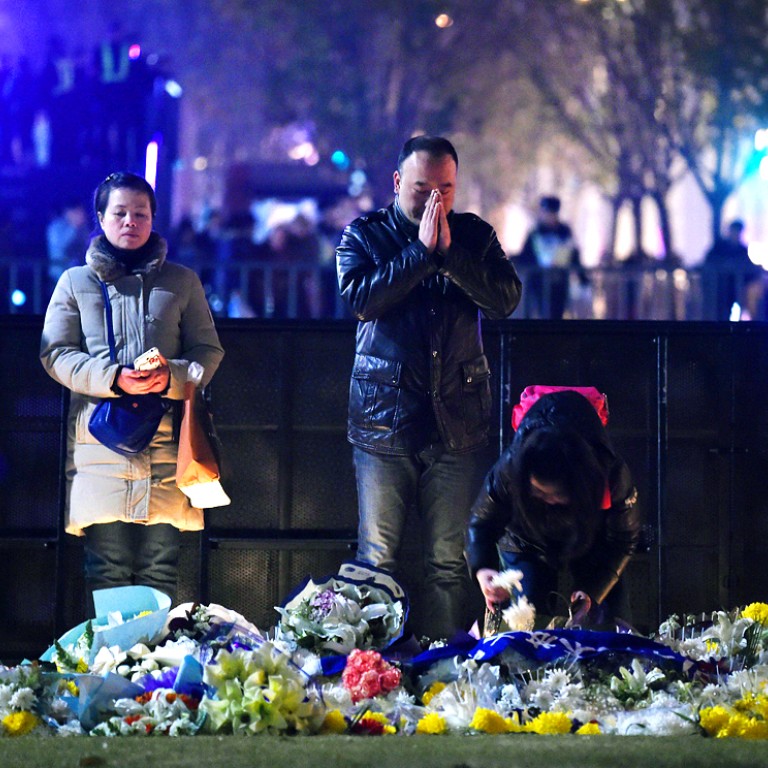
Anger after Chinese university says deadly Shanghai stampede vindicated its ban on Christmas
A university in Xian sparked controversy after claiming the deadly New Year stampede in Shanghai had vindicated its earlier decision to ban its students from celebrating Christmas.
A university in Xian sparked controversy after claiming the deadly New Year’s Eve stampede in Shanghai had vindicated its earlier decision to ban its students from celebrating Christmas.
Mainland media had initially criticised the Modern College of Northwest University’s arrangements over Christmas – including forcing students to watch patriotic propaganda films on Christmas Eve.
However, after the Shanghai stampede – in which at least 36 people were killed and 49 injured after pushing broke out on the waterfront – it issued a 2,000-character statement, entitled, “The unfortunate festival tragedy in Shanghai proved the university’s festival management was incomparably right”.
The university’s statement has gone viral on social media and attracted heated public debate.
It wrote: “If the Shanghai incident had occurred in Xian, if the Xian incident had occurred on Christmas Eve, and if there were students killed during the incident, then the value of the Modern College’s Christmas Eve management would stand out.”
DON'T MISS: Chinese families demand release of Shanghai stampede victims' bodies after foreigners' remains are returned
However, many Sina Weibo users called the statement “ridiculous” and “cold blooded”, while others mocked the comment saying, “You may choke when eating, so don’t eat anything”.
Another Weibo user added: “Students cannot be controlled, but guided. It’s so pathetic for university educators not to understand this and even be proud of it.”
Mainland media previously reported that the university had organised the screening of the propaganda film from 7pm to 9pm on Christmas Eve, with teachers made to stand guard to prevent students from leaving.
The university said it had acted in this way because many mainland Chinese people increasingly considered foreign festivals more important than traditional Chinese ones – something that “trumpeted servility towards Western things”.
While the university attracted criticism for its Christmas arrangements, it also gained some support, with some Weibo users warning against the widespread belief among young mainland Chinese that Western festivals were fashionable while traditional Chinese ones were corny.
